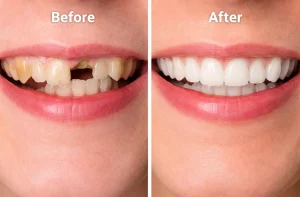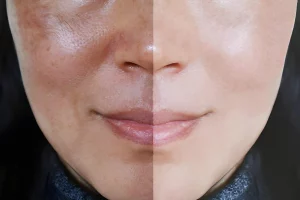Pericoronitis occurs when there is not enough space for the wisdom teeth to erupt through the gums. So it causes inflammation on the soft tissues surrounding the third set of molars, called wisdom teeth. Mostly, Pericoronitis affects the wisdom teeth on the lower jaw than the upper ones.
Pericoronitis needs to be treated as soon as possible because gum flaps may develop, as only partial wisdom teeth may develop, and these gum flaps are the areas where food can be trapped and lead to an infection. Read this article to know more about pericoronitis, which includes the symptoms, causes, home remedies for pericoronitis, and when to visit the doctor.
Common Symptoms of Pericoronitis
Pericoronitis can vary in severity from mild to severe. At the early stage, the symptoms may be mild, but as the infection progresses, the pain and discomfort can become significant. The most commonly faced symptoms of pericoronitis are,
- Swollen, red, or tender gums near the affected tooth
- Pain when biting or chewing, especially in the back of the mouth
- Bad breath or unpleasant taste due to pus drainage
- Difficulty opening the mouth (trismus)
- Swelling in the cheek or jaw area
- Fever in more serious cases
If you have once experienced these mild or severe symptoms, then consulting the dentist is required because the symptoms keep recurring over months.
What Causes Pericoronitis?
Several factors can contribute to the development of pericoronitis. They are,
- Partial Eruption of Wisdom Teeth: When a wisdom tooth breaks through the gum only partially, it creates a pocket between the gum and the tooth where bacteria can thrive.
- Poor Oral Hygiene: Inadequate cleaning around the wisdom teeth can lead to plaque buildup, increasing the risk of infection.
- Food Debris Accumulation: Food particles can get stuck under the gum flap, becoming a breeding ground for bacteria.
- Stress or Illness: A weakened immune system due to stress or illness can make it easier for infections to develop.
- Trauma from Opposing Teeth: Sometimes, the tooth in the upper jaw may irritate the gum flap covering the lower wisdom tooth, making the area more prone to infection.
Home Remedies for Mild Pericoronitis
Pericoronitis cannot be cured without the help of a dentist’s intervention. However, to alleviate the discomfort caused by pericoronitis, you can use the following home remedies:
1. Salt Water Rinse
Rinse your mouth with warm salt water several times a day. Salt has natural antibacterial properties and can help soothe inflamed gums and reduce swelling.
2. Over-the-Counter Pain Relievers
Non-prescription pain medications such as ibuprofen or acetaminophen can help reduce pain and inflammation.
3. Hydrogen Peroxide Rinse
Diluting hydrogen peroxide with water and using it as a gentle mouth rinse can help kill bacteria and clean the affected area.
4. Ice Pack
Use an ice pack or cold compress on the outside of your cheek to numb the discomfort and reduce swelling.
5. Maintain Oral Hygiene
Keep your mouth as clean as possible. Brush gently around the affected area and avoid irritating foods that may get trapped near the gum flap.
When Should You See a Dentist?
Home remedies may offer short-term relief, but pericoronitis often requires professional treatment to prevent complications. You should see a dentist if,
- The pain is persistent or worsening
- You have swelling that spreads to the cheek or neck
- You experience fever or difficulty swallowing
- There is pus or a bad taste in your mouth
- You find it difficult to open your mouth fully
Once you visit a dentist. They will evaluate the severity of the infection and recommend appropriate treatment that may include professional cleaning, antibiotics and in some serious cases minor surgery is done to remove the gum flap or the wisdom tooth itself.
How Is Pericoronitis Treated?
Treatment for pericoronitis depends on the severity of the condition. Here are common treatment options:
1. Professional Cleaning
The dentist may clean under the gum flap to remove trapped debris and reduce bacterial buildup.
2. Antibiotics
If there is a significant infection, antibiotics such as amoxicillin or metronidazole may be prescribed to control the infection.
3. Opercullectomy
In recurring cases, the dentist may remove the gum flap surgically to prevent further episodes.
4. Wisdom Tooth Extraction
If the tooth is impacted or poses a risk for future infections, your dentist may recommend removing the wisdom tooth.
Can Pericoronitis Be Prevented?
Yes, with good oral hygiene and regular dental checkups, the risk of pericoronitis can be minimized. Here are a few preventive measures,
- Brush and floss daily, especially around the back molars
- Use antibacterial mouthwash to reduce plaque buildup
- Schedule regular dental visits for early detection of wisdom tooth problems
- Follow your dentist’s advice about removing partially erupted or impacted wisdom teeth
Takeaway
Pericoronitis is a common yet often overlooked dental problem associated with partially erupted wisdom teeth. Pericoronitis may start with a mild discomfort and lead to more serious infections. You can use the home remedies to alleviate the discomfort, but they cannot cure the condition. So, consider visiting the dentist to get treated for pericoronitis. Visit Oris Dental Center in Dubai to treat mild to severe pericoronitis.





